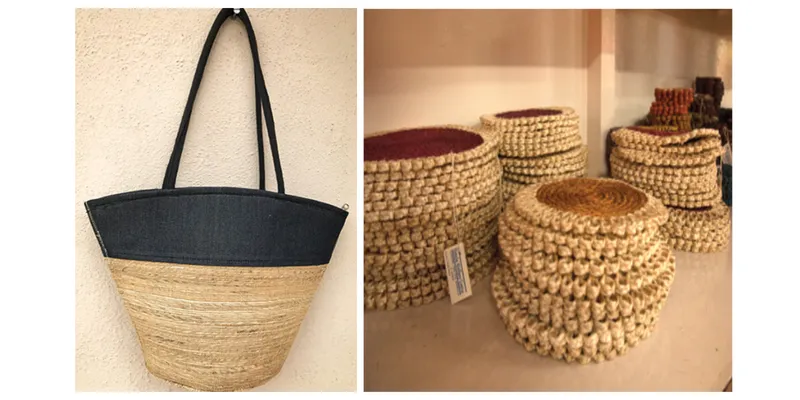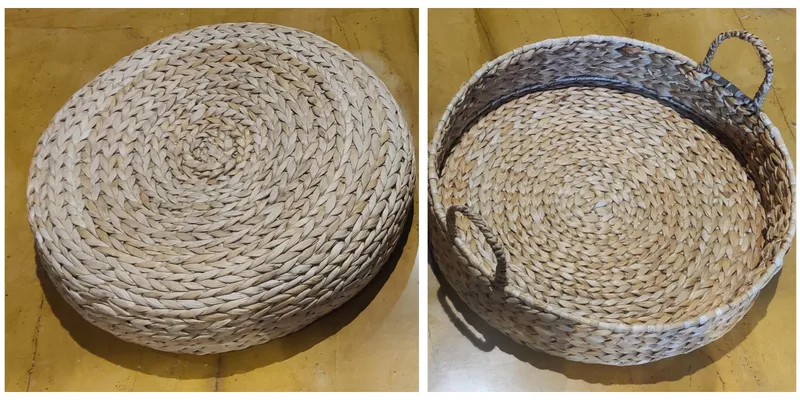Agritech startup Greenikk is building a digital ecosystem for banana farmers
Thiruvananthapuram-based Greenikk has come up with enablement centres to provide banana farmers with production and marketing-related support.
College friends Fariq Naushad and Previn Jacob Varghese were always inclined towards entrepreneurship.
During their college days, they started a company called Invento Technology Solutions that developed a platform for homemakers to sell food online. Later, in 2016, they started a software solutions company called Teczium Solutions in Rwanda. While the company managed to close deals worth $750,000 within 12 months of operations, Fariq and Pervin were still unhappy. They wanted to build something for India and in India.
This laid the foundation to . According to the co-founders, after returning to India in 2019, they were intrigued by the sustainability push, which made them build a product in the agri space.
Thiruvananthapuram-based Greenikk is currently building a banana farmer-centric digital ecosystem. The agritech platform has built Enablement Centres (EC) to provide farmers with the required support such as finance, seeds, crop advisory, insurance coverage, agri inputs, including weather tips, and market connect, covering the entire gamut of production and marketing both inside and outside the country.
According to the founders, the startup aims to solve problems for every stakeholder in the entire banana value chain--from banana farmers and processing units to commission agents, bulk B2B buyers, and fibre buyers. The startup also takes banana waste and converts it into manure and banana fibre.
“We are the first full stack platform in the banana value chain that provides end-to-end support (starting from finance/insurance to marketing the produce and getting value from waste). It, in fact, will increase the revenue for every stakeholder in the banana value chain,” says Fariq.
As of now, the startup has established ECs in some of the major banana producing agri belts in the country such as Kerala, Tamil Nadu, and Karnataka.
How it started?
In 2019, there was a ban on single-use plastics in India. This gave Previn the idea to convert papaya petiole into a sustainable straw. Pervin and Fariq worked with a scientist to bring out the end product and presented it at the Tata Social Enterprise Challenge held at IIM Calcutta. Greenikk also won recognition as one of the top 3 social startups in the country in 2020.
The company continued to work with papaya dealers and farmers until 2020. But during the pandemic, the team had to put this project on hold as the costs were going high and the hospitality sector went into a standstill.
Meanwhile, the company was still getting inquiries if it could help with the distribution of the fruit from the network it had built. The team also got insights from working with the central government's BIRAC fellowship programme, where it worked with farmers to build a B2C model of procuring and delivering fresh produce to customers. This model also got the company an initial investment from a US-based investor.
Once the economy opened up, Greenikk pivoted to a B2B model as there was more scope for growth.
“Other than being a digital trader, we could not add any value. So, as founders, we came to the conclusion--why not focus on a set of crops, or maybe at least one crop to start with, and then go deep into it,” shares Fariq.
This made them narrow down their focus to an all-round crop—banana, as India is also the highest producer of banana globally.

Finished fibre products made by Greenikk using agricultural waste ( pseudostem)
Challenges
Organising a 200-year-old fruits and vegetables supply chain requires some real ground level effort, says Fariq. The company was initially cheated out of money from its stakeholders. Fariq recollects an instance when an entire truckload of banana went missing one day and they found out they got cheated by a dealer, causing them a loss of Rs 1.55 lakh.
“We also face tremendous pressure, resistance, and threats from dealers to not approach farmers directly,” shares Fariq. “We had also reached a stage where we had to close down the company twice because of zero cash. This made us change our business models three times to land into the single crop of banana.”
“Right now, our platform works on a unique model, which empowers the dealers and all the existing stakeholders too,” he adds.
Building an ecosystem
The company sells bananas to bulk B2B buyers like chips manufacturers, export agents, and large wholesalers. While the startup is yet to be profitable, Fariq shares they are actively investing in R&D.
Greenikk, which has a network of 10,000 farmers, grew 300% in FY 22, with sales of Rs 1.58 crore. Fariq shared the startup is projected to end the current financial year at Rs 6 crore.
“Our product is a technology platform (physical & digital) that all the stakeholders can access,” Fariq shares.
Physical enablement centres across banana-growing belts will provide end-to-end farming services and products to the farmers. Digital platforms will link all the banana stakeholders together, enabling them to access finance and other facilities such as buying/selling of the produce.
“We will also be having end value-added-products made from bananas (chips, banana powder, banana wine) while its waste stems will be used for making banana fibre, handicraft, and textile products—all under our own brand,” adds Fariq. Greenikk is currently selling these products through a platform called Vimala Welfare, and is looking to sell on ecommerce platforms like Amazon in the near future.
The startup has a 12-member team and carters to clients like Beyond Snacks (Shark Tank Funded), Tierra Foods, Chedda Foods Mumbai, Kozhikodens, Casco Mumbai, Vimala Welfare Centre, and Reshamandi.
Greenikk is currently competing with Vegrow, INi farms, and Desai Farms.

Finished fibre products made by Greenikk using agricultural waste ( pseudostem)
The market and funding
India has close to 1,300 agri startups. It is the third largest in the world in terms of receiving agritech funding, according to a report by Bain & Company. According to an EY report, the market linkage and supply chain is expected to cross $12 billion in market potential by 2025.
Early this month, Greenikk raised Rs 5.04 crore in pre-seed funding led by 9 Unicorn Ventures; Kerala-based angel group Smart Spark Ventures; Manish Modi, who heads Mauritius-based Mastermind Capital Ventures; Saurabh Agarwal and Mayank Tiwari, founders of Reshamandi; and Arjun Pillai, who sits in the board of Zoom info.
Plans ahead
The company plans to have a model farm setup in Theni and Mettupalayam Districts of Tamil Nadu, where latest banana farming practices will be used. These will act as a model to the farmers around the belt, says Fariq
The startup will also set up artisan units (fibre to fashion) in Kochi, Kerala; and Theni, Tamil Nadu, to covert natural banana fibre into value added products.
In Tamil Nadu, the company plans to create two agri input and collection offices to conduct farmer engagement programmes, marketing and advisory services, and sale of agri inputs related to banana.
Fariq shares that Greenikk wants to reach out to 50,000 farmers in the next 15 months and expand enablement centres across Tamil Nadu and Karnataka.
Edited by Megha Reddy









